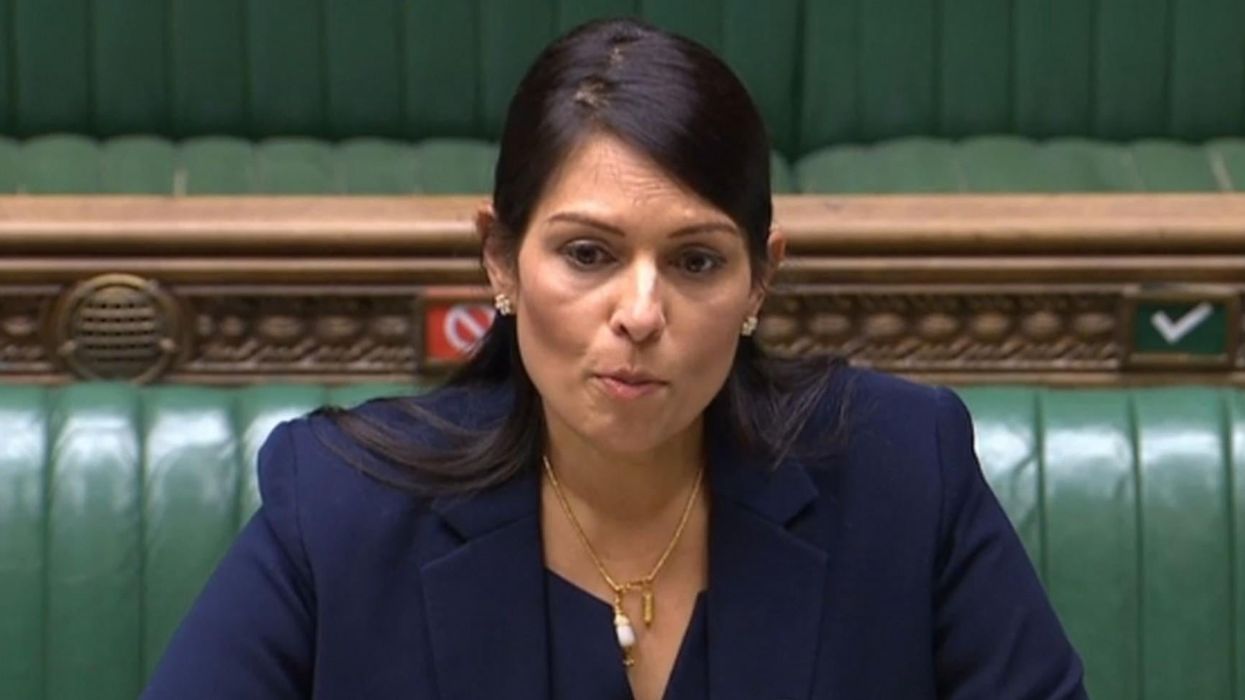Celebrities
Faiza Shaheen
Jun 16, 2020

The Tories are in a mess on race.
Even if we exclude Boris Johnson’s history of racist articles and the Windrush scandal, their woeful response to George Floyd's murder and Black Lives Matter demonstrations tells us all we need to know about why the government are intensely relaxed about racial inequalities.
Just in the last week, black Labour MPs have been patronised and the PM launched an eight-tweet diatribe against the Black Lives Matter protests.
They even issued a report on disproportionate BAME deaths from Covid-19 with all the meaningful bits like the recommendations taken out, and now they announce a new race equality review led by a Number 10 official who has a history of vehemently attacking any action on constructively tackling the problem.
At the heart of their woeful response sits Home Secretary Priti Patel.
While the Tories use her and other South Asian Tory cabinet members to deflect attention away from discriminatory policies, for many of us Patel has come to embody the superficial approach to race that purposely avoids doing the hard work of dismantling structural racism.
It’s identity politics, but without the good intentions.
Take last week, when there was an exchange in the House of Commons between Labour MP Florence Eshalomi and the home secretary.
Eshalomi suggested the government did not understand the anger felt by black people and the desire to tackle structural racism.
Patel responded by describing her own experiences of racism, and while this is very wrong that anyone would be abused with the racial slurs that she said in the chamber, this still isn't the same as the structural anti-black racism that was being discussed. But by conflating structural racism with racist slur, the home secretary essentially dismissed the specific black experience while deflecting attention from the need to do anything about it.
This approach, one that says that experiencing racism automatically means you are committed to tackling it, is very problematic.
This type of "politics of representation" reduces change to more brown and black faces in high places without fundamentally shifting the imbalance of power and wealth.
Just days later, Patel stood up in the Commons to announce a review led by Munira Mirza, whose articles in Spiked include attacks on the David Lammy's review into racism in the criminal justice system, and on Theresa May’s race equality audit.
Disrespect is the best way to describe the government’s approach, but it also underlines the Tories' personal failings as leaders. Whether they be white, brown or black, Tory ministers don’t want to do anything about racism because it would mean confronting their own policies.
This week Priti Patel claimed that Sir Keir Starmer had failed to depart from the politics of Jeremy Corbyn, which she claimed was “divisive, hateful” and “racist”.
The Labour Party is being investigated for its handling of antisemitism complaints by the Equality and Human Rights Commission – but to claim that the politics of the Labour party are racist is not remotely credible.
It is especially galling when the Tories have a huge problem with Islamophobia but refuse to take action, when their hostile environment policies led to the deportation of Windrush Generation Black Caribbeans who came here as British citizens.
Conservatives knew Johnson had a long history of racist remarks when they elected him – despite Britain becoming an increasingly multicultural society – but calculated that it didn’t matter that much because criticism over his back catalogue of articles had blown away and there wasn’t a strong anti-racism movement to keep the pressure up. How wrong they were.
Black Lives Matters has changed everything. It has changed the conversation, and ministers from the PM down are floundering.
No wonder the Conservatives have been keen to focus on the statue of Winston Churchill, rather than implement the dozens of recommendations for various reviews, including the Lammy review, the McGregor-Smith review, the Parker review and so on.
The wheeling out of brown politicians to try and justify little or no action is one of the last cards the right have, along with trying to provoke a culture war, which dangerously feeds the far-right. It’s a politics of yesteryear that seeks to avoid tackling racial disparities by turning neighbour against neighbour.
The Johnson government has shown its complete inability to rise to the challenge of tackling racism, and Priti Patel’s attempts to make this about her own experiences of racism are only making the matter worse.
Faiza Shaheen is the director of the Centre for Labour and Social Studies and a former Labour Party parliamentary candidate.
Top 100
The Conversation (0)













